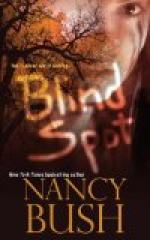On the seventh day after the night of Harry’s going, our household was increased to three members. For it was then that Jerome returned from Nevada, whence he had gone two weeks before on a case.
“Not at all surprised,” he commented, when I told him of Harry’s disappearance. “Sorry I wasn’t here. That crook, Rhamda Avec, in at the end?”
He gnawed stolidly at his cigar as I told him the story. Then, after briefly approving what I had done to brighten the house, he announced:
“Tell you what. I’ve got a little money out of that Nevada case; I’m going to take another vacation and see this thing through.”
We shook hands on this, and he moved right into his old room. I felt, in fact, mighty glad to have Jerome with us. Although he lacked a regular academic training, he was fifteen years my senior, and because of contact with a wide variety of people in his work, both well-informed and reserved in his judgment. He could not be stampeded; he had courage; and, above everything else, he had the burning curiosity of which Harry has written.
I was upstairs when he unpacked. And I noted among his belongings a large, rather heavy automatic pistol. He nodded when I asked if he was willing to use it in this case.
“Although”—unbuttoning his waistcoat—“I don’t pin as much faith to pistols as I used to.
“The Rhamda is, I’m convinced, the very cleverest proposition that ever lived. He has means to handle practically anything in the way of resistance.” Jerome knew how the fellow had worsted Harry and me. “I shouldn’t wonder if he can read the mind to some extent; he might be able to foresee that I was going to draw a gun, and beat me to it with some new weapon of his own.”
Having unbuttoned his waistcoat, Jerome then displayed a curious contrivance mounted upon his breast. It consisted of a broad metal plate, strapped across his shirt, and affixed to this plate was a flat-springed arrangement for firing, simultaneously, the contents of a revolver cylinder. To show how it worked, Jerome removed the five cartridges and then faced me.
“Tell me to throw up my hands,” directed he. I did so; his palms flew into the air; and with a steely snap the mechanism was released.
Had there been cartridges in it, I should have been riddled, for I stood right in front. And I shuddered as I noted the small straps around Jerome’s wrists, running up his sleeves, so disposed that the act of surrendering meant instant death to him who might demand.
“May not be ethical, Fenton”—quietly—“but it certainly is good sense to shoot first and explain later when you’re handling a chap like Avec. Better make preparations, too.”
I objected. I pointed out what I have already mentioned; that, together with the ring, the Rhamda offered our only clues to the Blind Spot. Destroy the man and we would destroy one of our two hopes of rescuing our friends from the unthinkable fate that had overtaken them.




